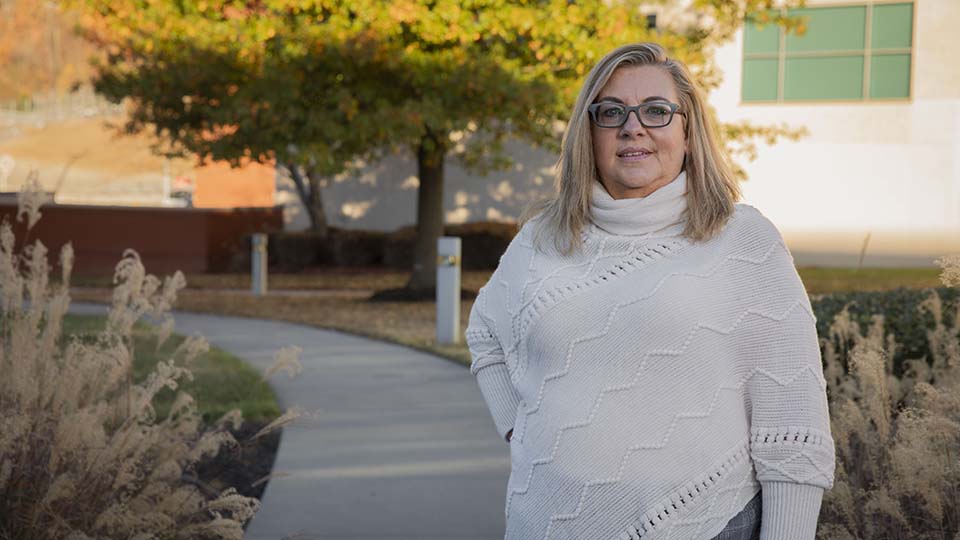
Marcia B. has been working for the federal government or as a contractor since she was 16. “I worked as a student aide at the [Oak Ridge] Federal Building,” she said. From there, she had various Department of Energy assignments in Oak Ridge, including scanning records, transcribing personnel security interviews, and a stint in Waste Management.
After managing a group of support staff in Waste Management, she began working for Safeguards and Security. “My love for safeguards and security started then,” she recalled. “What we call an enterprise assessment now was handled locally then. I enjoyed going out on audits. I remember thinking, ‘Why can’t you implement these requirements?’ Once I came to Y‑12, I realized the requirements are not that easy to implement.”
Marcia said, “The hardest thing about implementation is making sure everyone understands the requirements. You have to make the policy clear and concise and implement consistently and constantly.”
She says the best part of her job is finding a solution to a potentially negative situation. “For example,” she explained, “when our shipments were shut down, brainstorming on storage options and meeting with people for resolution was rewarding. You can see that you’ve made a difference … a positive impact on the site.”
“I can’t imagine doing anything else,” she said. “I always wanted to do something with the government where I could make a difference in the country and have a positive effect on us as a nation.”
Are you doing what you envisioned as a young adult? If so, describe how you got here.
Yes and no. I grew up around this area, so working at one of the government sites was always on my radar. As a young girl, I had always heard they make good money. Growing up with a single mom who couldn’t afford much, ‘good money’ sounded great. However, when I started college, my goal was to become a corporate lawyer … that’s too long of a story to tell … let’s just say that several years later I ended up receiving a degree in criminal justice, and that was much more interesting.
What is your favorite aspect about your work environment? How does that aspect make you know the mission is being met?
The people. We have some really fascinating people who work here, and I am so thankful every day that I have been blessed to get to know them. It takes all of us to meet the mission just like it takes a village to raise a child. While I have a part to play, it’s all the tiny parts that each of us play that ensure we are able to meet the mission and support the greatest country on earth.
What work advice would you offer someone who is new to Pantex or Y‑12?
Learn all you can and don’t be afraid to ditch what you know and try something new. Our sites are so diverse and there are so many jobs that you can chose to do out here. If you’ve mastered one, don’t be afraid to jump into another one.
What one thing would your coworkers be surprised to know about you?
Those close to me know I have held a clearance since I was 16 years old. The other secret is that I really like to sing, but I am afraid to do so in public.
What is the top lesson you have learned by applying problem‑solving skills to an issue? What advice would you offer a newer employee about the importance of solving problems and asking questions?
In my mind these questions go hand in hand.
As a new employee, we spend a lot of time in class and on the floor learning various aspects about the site and, more importantly, about our job and its role in the site’s mission. All of that information is important to our success, but our ability to ask questions and begin to put our problem‑solving skills to the test is more important. New employees bring both their skills and a fresh set of eyes. What they see and how we operate may not make sense. Ask questions to learn and offer possible solutions. You’ll become more knowledgeable and our site will improve.
I am a problem solver at heart. I love puzzles and riddles, and I also ask questions a lot. I am happiest when I am able to find a solution to a complex problem, whether that’s for the site or my family. The most important lesson I’ve learned about being a good problem solver is that there is almost always more than one way to solve a problem. Working with others, brainstorming, and doing research to understand history go a long way toward ensuring you are able to provide a solution that is logical, cost effective, and agreeable to most, if not all, stakeholders.